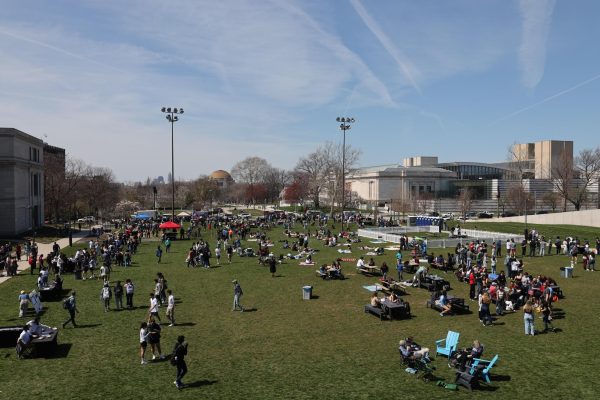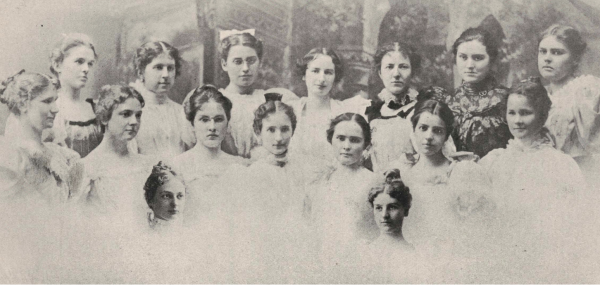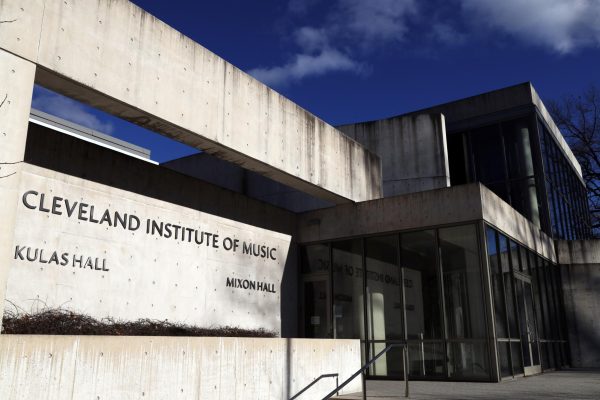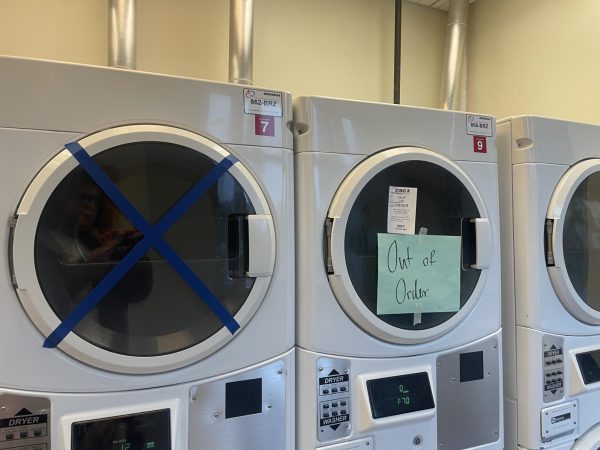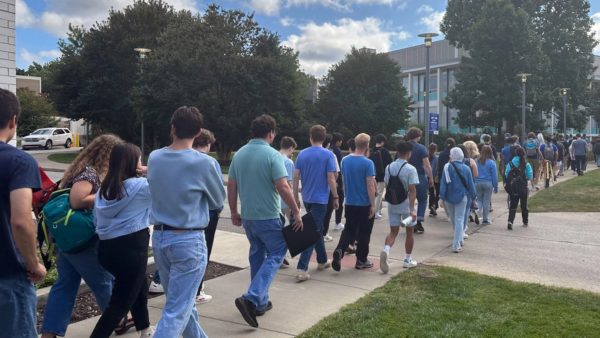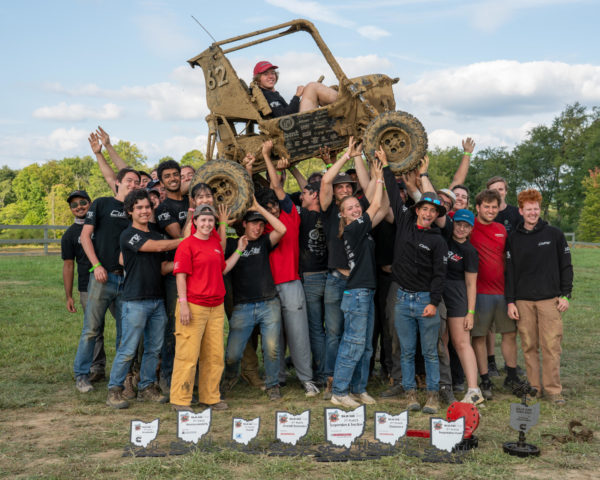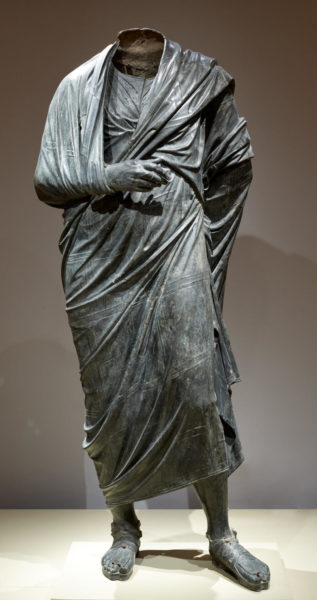The king of Euclid
As I approach Officer Mark Chavis, I find myself having to wait in line. Chavis at his usual corner at the intersection of Adelbert Road and Euclid Avenue, is accompanied by a woman with a tight smile and clasped hands. After hearing words like “cancer” and “sister,” I decide to maintain a respectful distance. This isn’t a conversation meant to be heard by strangers. It’s one between friends.
A few minutes later, the woman leaves, and the effect of Chavis’ words is obvious. Her smile, although small, seems more genuine, and her hands are relaxed at her sides.
Chavis turns, greeting me with a fist bump.
Better known simply as Officer Mark to the campus community, Chavis is one of prospective students’ first impressions of Case Western Reserve University. Armed with a cheery grin and a ready thumbs-up, Chavis presents a great example of a friendly campus environment. After all if police officers are this nice, what does that say about the campus as a whole?
Although Chavis appears to have been at that corner as long as the Allen Memorial Library, he began working at CWRU in September of 2003 as a security guard. He took his post at the intersection a few years later when the Euclid Corridor Project began and he has remained a permanent part of campus ever since.
Rain or shine—and too often snow—Chavis has greeted students, proclaiming the goodness of Friday, hump day and even Friday Eve (Thursday).
But before he was Officer Mark, Chavis worked as an assistant for a physical therapist and then worked in the youth prison system.
“I learned how to be humble,” Chavis recalled. “I learned that there are a lot of people who are worse off than I am, who have never had a chance, just because of their upbringing. They only knew wrong decisions, from the time they were babies, so they never really knew what to do—how to go left, how to go right. It really felt good that when I was put into that situation, I was able to recognize it and assist a few young men in making right decisions.”
Despite a change in career however Chavis hasn’t stopped reaching out to people.
“Even though I’m dealing with a lot more positive instead of a lot more negative, I still find myself filling in gaps of life,” he said. “Everybody needs a little bit of help, regardless of the situation you may be in, good or bad. Everybody has broken gaps in their lives, and I’ve always found myself trying to fill in gaps for those individuals.”
An abundance of students can call to mind interactions with Chavis, who has made himself easy to reach. Junior Katelyn Friedl remembers some of her conversations with the police officer:
“I really appreciate that Officer Mark always has something encouraging to say,” said Friedl. “He will always checking in with me, and it’s really touching that he cares.”
Chavis credits his mentality of helping others to his mother. He was raised on a “big hay farm” in Ravenna, and although he remembers much poverty in his community, he also remembers his mother reaching out to those in need.
“We’ve always been in a good situation, and we’ve always been in a situation where we help people out,” he said. “If they helped her bring in the hay, she took care of their animals all winter.”
Outside of work, and true to his upbringing, Chavis spends plenty of time outside fishing, biking and anything else that deals with the outdoors, “as long as [he] can breathe fresh air.”
He also enjoys carpentry and does several projects in his free time. On that same vein, Chavis also enjoys drawing, especially landscapes.
Much of his time is also spent with his family, which includes seven children and six grandchildren. Four of these children were once his foster children, whom he adopted. In his time as a foster parent, Chavis had a total of “30-some” kids come by.
“I had the last four for a long time,” he recalled. “They were calling me ‘Dad.’ Instead of doing them another injustice, I went ahead and kept them and gave them a great start in life.”
At this point, Chavis paused the interview to deliver a full rendition of “Happy Birthday” to a student, who walked away with a smile and buoyant walk. Despite this perpetually cheery demeanor, Chavis said the past two years have been difficult for him—he has lost about eight or nine people.
“Life is hard,” he said. “If you’re not a strong person, it can eat you up. What I like to say is that I stay armored up; I keep my religion all around me. I just gotta make sure I keep myself protected and don’t let anybody affect my soul. I try to keep my things external, and I don’t let it get inside of me. Once it gets inside of you, it starts eating away at you. I’m not saying it doesn’t get at me, because it does: I’m human. I just try, I try to stay strong and stay positive for a bunch of people in this world.”
When asked what advice he wanted to give to the CWRU community, Chavis delivered a simple reply: “For those who have parents, cherish them, cherish them, cherish them. One day they won’t be here, and if you haven’t told them you love them in a long time, tell them.”

Maria Fazal is a senior majoring in psychology and bioethics. She is the Arts & Entertainment Editor for The Observer. Hailing from a small Ohioan...








